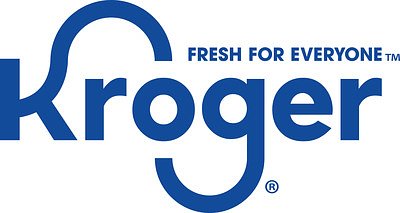
Kroger and Uber Eats Deepen Partnership, Blurring Lines Between Grocery and Delivery
Expanded alliance brings grocery and restaurant options under one roof, fueling convenience but raising questions about competition and labor practices. Consumers set to benefit from loyalty program integration.
Kroger and Uber Eats Deepen Partnership, Blurring Lines Between Grocery and Delivery
NEW YORK, NY – October 30, 2025
The Future of Food Commerce
The grocery landscape is undergoing a rapid transformation, and the latest move from Kroger and Uber Eats signals a significant acceleration of that change. The two companies are dramatically expanding their partnership, integrating Kroger’s vast grocery offerings directly into the Uber Eats app and, crucially, intertwining their loyalty programs. This move isn’t just about convenience; it’s a strategic play to capture a larger share of the consumer’s food dollar, blending the lines between traditional grocery shopping and on-demand meal delivery.
Starting in early 2026, over 2,600 Kroger stores, spanning banners like Ralphs, Fred Meyer, and King Soopers, will become available on the Uber Eats platform. But the partnership goes far beyond simple inventory access. The companies are deeply integrating their respective loyalty programs – Kroger Boost and Uber One – offering reciprocal benefits to members. This includes extended free trials, cash back rewards, and free delivery options, incentivizing customers to consolidate their food purchases within this ecosystem.
“Consumers are increasingly demanding seamless, convenient experiences,” explains one industry analyst. “They want to order groceries and restaurant meals from a single app, and this partnership delivers on that expectation. It’s a logical evolution in the current food commerce landscape.”
A Competitive Response and Market Dynamics
The expansion isn't happening in a vacuum. Kroger and Uber Eats are directly challenging the established players in the online grocery and delivery space. Instacart, long a dominant force in grocery delivery, is facing increased pressure as major retailers seek greater control over the customer experience. Walmart is also aggressively expanding its own delivery capabilities, leveraging its extensive store network and logistical infrastructure. Amazon, with its Whole Foods acquisition, continues to innovate in the grocery space, experimenting with cashierless stores and automated fulfillment centers.
“The competition is fierce,” says another retail consultant. “Instacart’s position is particularly vulnerable. Kroger is a significant client, and the deep integration with Uber Eats could steer a substantial portion of that business away from Instacart.”
The move also comes as Uber Eats seeks to diversify its revenue streams beyond restaurant delivery. Grocery is a high-growth market, and the partnership with Kroger provides access to a vast inventory and a loyal customer base. However, achieving profitability in grocery delivery remains a challenge, with thin margins and high logistical costs.
“Uber Eats needs to scale its grocery business quickly to make it sustainable,” notes one financial analyst. “The partnership with Kroger gives them a significant advantage, but they’ll still need to manage costs effectively and compete on price.”
Beyond Convenience: Data, Loyalty, and the Retail Media Landscape
While convenience is a key driver of the partnership, the strategic implications extend far beyond simply making it easier for consumers to order groceries. The integration of loyalty programs unlocks a wealth of data, allowing Kroger and Uber Eats to gain deeper insights into customer preferences and behaviors. This data can be used to personalize offers, improve targeted advertising, and develop new products and services.
The companies also plan to collaborate on building retail media experiences, leveraging their combined customer data to deliver more relevant and engaging advertising to brands. This represents a significant opportunity to generate new revenue streams and enhance the overall customer experience.
“The data is the real prize here,” explains a marketing executive. “The ability to understand what customers are buying, how they’re shopping, and what motivates their purchasing decisions is invaluable. This partnership gives Kroger and Uber Eats a competitive edge in the increasingly crowded retail landscape.”
However, the collection and use of customer data also raise privacy concerns. Consumers are becoming increasingly wary of how their personal information is being used, and companies must be transparent about their data practices and provide customers with control over their data.
“Transparency and trust are essential,” warns one consumer advocate. “Companies must prioritize data privacy and ensure that they’re using customer data responsibly.”
